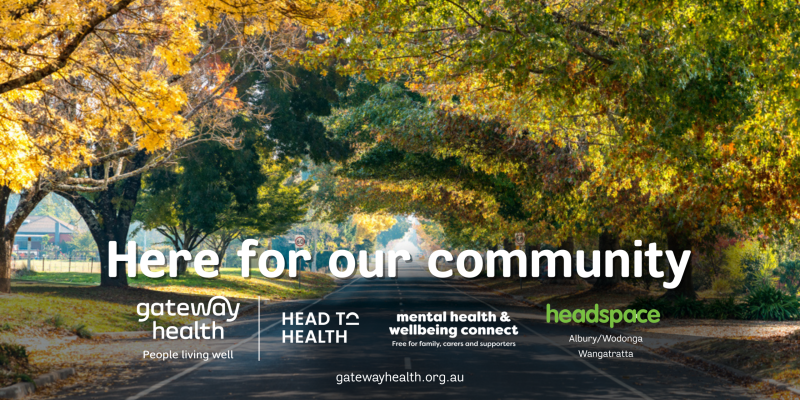From attending a Women’s Health Day event to being involved in research projects related to refugee health, the past 10 years have been a journey of growth for one Gateway Health team member.
Bhakti Dhamala is a project officer and multicultural worker at Gateway Health and has seen the organisation grow its presence across the multicultural community.
Bhakti first found Gateway Health when she acted as interpreter at the event soon after relocating from Darwin.
A chance meeting with refugee doctor Catherine Orr and nurse Penny Wilson led to the start of her employment with Gateway Health.
“At that time, Gateway Health was undergoing some changes and improvements, particularly in their multicultural and refugee health clinics,’ Bhakti said.
“Gateway Health was also in search of a multicultural worker and interpreter to assist refugee patients and clients in accessing the services they offered.
“Although I had only acquired limited knowledge about Gateway Health at that point, I was eager to learn more and contribute to their mission.”
Bhakti began collaborating with the refugee clinic and worked as an interpreter for the medical clinic in Wodonga and other services within Gateway Health.
Over the past 10 years, she has seen the connections of the multicultural community and Gateway Health services grow.
“The multicultural community had little connection with Gateway Health and only the refugee community knew about Gateway Health services,” Bhakti said.
“The rest of the CALD community including international students, skills workers and many more cohorts did not know about Gateway Health. This was due more to the community perception of Gateway Health as only a refugee clinic, not for other services and limited cultural exposure in Albury and Wodonga communities.
“Since 2014, there has been a steady increase in the number of refugees arriving in Albury and Wodonga from Bhutan and Africa, accessing the services provided by Gateway Health.
“This has led to the expansion of services, providing more opportunities for multicultural individuals to work with Gateway Health.
“New services have been developed specifically for CALD communities, enhancing communication and support. Gateway Health offers a range of services such as parenting support, counseling, family safety (Domestic violence), and more, all of which play a crucial role in promoting the health and safety of CALD communities.”
Gateway Health is now seen as a multidisciplinary service that opens doors to various other services, providing multicultural assistance including employment support, networking for community involvement and facilitating access to local services and networks through various community engagement opportunities.
Bhakti said staff at Gateway Health were active in supporting and connecting the multicultural community, seeking their input and inviting multicultural and faith leaders to events and activities.
Some of the key services included the Breast Screen program, initiated in 2015 with the help of refugee nurses and a bilingual worker, which continues to this day; the “That Girls Wodonga project” which played a crucial role in educating multicultural women and young people about the unacceptability of violence; and, providing volunteer opportunities which help build confidence and gain valuable experience.
Bhakti was also involved in a research project looking at multicultural clinics and patients living with chronic pain which led to the development of a published paper exploring qualitative conceptualisations of chronic pain among a group of Nepali-speaking Bhutanese adults with a refugee background who relocated to rural and regional Australia. This research provides practitioners with a cultural lens to better understand and work with refugee clients and patients.
Reflecting on the past 10 years, Bhakti said she is proud to be a part of the Gateway Health team.
“This experience has been amazing, allowing me to enhance my knowledge and expertise in community service. Being a member of this team has provided me with invaluable knowledge and experience in the field of community health and multiculturalism,” Bhakti said.
“I have had the privilege of working alongside experts in various areas such as women’s health, refugee health, gender-based violence, and family safety. Additionally, I have honed my research skills through involvement in research projects related to refugee health.
“I consider myself fortunate to have completed my Diploma of Community Development, Advanced Diploma of Organisational Management, and Bachelor of Social Work.
“What sets working at Gateway Health apart for me is the opportunity to take on different roles and responsibilities.
“As a multicultural liaison officer and interpreter, I have had the chance to interact with and learn from diverse individuals who are experts in the fields of health and multiculturalism. I have also been involved in the NDIS program, specifically in community inclusion, which has provided me with further experience in working with individuals with disabilities. Currently, I am enjoying my role as a SEC project worker, where I continue to learn and grow.
“None of this would have been possible without the unwavering support and care of the organisation and its staff at Gateway Health.”
This July marks the 10th anniversary of the merger of Gateway Community Health in Wodonga and Ovens & King Community Health Service in Wangaratta.
Today, Gateway Health is a charitable, not-for-profit community health organisation providing affordable healthcare, support services, community programs, and outreach initiatives across North East Victoria and parts of southern NSW.
The needs of rural and regional people and communities are our priority when delivering quality care across sites in Wodonga, Wangaratta, Myrtleford, Benalla and Shepparton.



